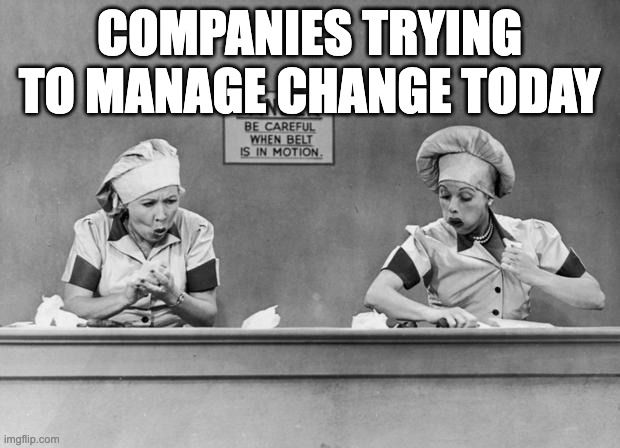Back to the Future …of Work!
- Robert Caldera
- Oct 28, 2022
- 3 min read

“We believe that embracing the principles of social (transparency, authenticity, trust, and a culture of sharing/collaboration) are the foundation for the future of work.” – Susan Scrupski*
“The future of work is about getting back to basics and unleashing the power of people.” – Ayelet Baron**
With all the dialogue on the future of work today, you’ve probably heard or come across quotes that express similar sentiments to the ones above…..except these were written eight years ago! Given the current conversations on the topic, it certainly seems like my former colleagues from Change Agents Worldwide were prescient. You might say that the future of work is finally catching up to “the future that was.”
Since the pandemic, interest in the future of work has increased. In fact, Google Trends shows that searches of the term “Future of Work” increased by 54% from the beginning of the pandemic to a peak in April of this year (currently down 8% from that high as of this writing), and by 80% since those quotes were written in 2014.
There also seems to be a more serious tone to the discussions now – sort of a legitimacy that wasn’t there before. Exploring the future of work is no longer a “nice to have” or just a “what if” thought experiment led by idealistic change agents with rose-colored lenses (I should know; I was one of them). The significant shift to remote work that occurred during the pandemic’s peak opened a lot of eyes. Work could be different.
While technology has often led to dramatic changes in the way we work, this shift (i.e. connecting remotely at scale) was simply more palpable. The change was visible to everyone. It was felt everywhere. Remote work by itself isn’t that revolutionary (many of us were doing it often long before the pandemic) but when the whole world is experiencing it together, and being just as productive, it suddenly becomes the “shot heard round the world” (to continue the revolution metaphor).
The overnight shift to remote work also brought to the public sphere other questions about the way we work. Questions that were the center of early future of work discussions, such as how we can move away from outmoded industrial era practices to more human ways of working. Suddenly, everything is on the table and the future of work, as envisioned by many a decade ago, seems to be within reach (or at least more feasible). Business leaders of all stripes have taken notice. It’s as if for them – in the immortal words of comedian Martin Lawrence from the movie Bad Boys II – “S#*t just got real!”
That’s why, for many of us who were heavily involved in those early future of work conversations, this has been a welcome refocusing of the topic. There is so much still to explore and so much to do to transform work.
Beyond making it crystal clear that the nature of work is changing, the pandemic had another effect. It was a stark reminder of how fleeting life is. We all know someone or some family (if not our own) who suffered greatly. As a result, scores of people reevaluated the place work holds in their lives. Who wants to toil away at a meaningless or stress-inducing job after what we experienced the past few years? The so-called “Great Resignation” has been a byproduct of this.
Therefore, there is no better time than right now to reimagine work! So, build your company’s flux capacitor and take it back to the future of work!
* From “The New Visionaries: An Interview With Susan Scrupski” by Stowe Boyd, February 27, 2014
** From “Changing the World of Work. One Human at a Time: Twenty-One Essays on How Companies can Overcome Organizational Inertia and Forge a Connected Workforce Founded on Trust” published by Change Agents Worldwide, 2014






Fitness at work refers to the concept of maintaining a healthy lifestyle and physical fitness while working. It involves incorporating healthy habits into your daily routine, such as regular exercise, healthy eating, staying hydrated, and taking regular breaks to stretch and move around.
There are several benefits of promoting fitness at work, including increased productivity, reduced absenteeism, improved morale and job satisfaction, and lower healthcare costs for both employees and employers.
Employers can promote fitness at work by providing on-site fitness facilities, organizing fitness classes or challenges, offering healthy snacks and meals, and promoting a culture of physical activity and well-being. Employees can also take responsibility for their own fitness by making healthy choices throughout the day, such as taking…